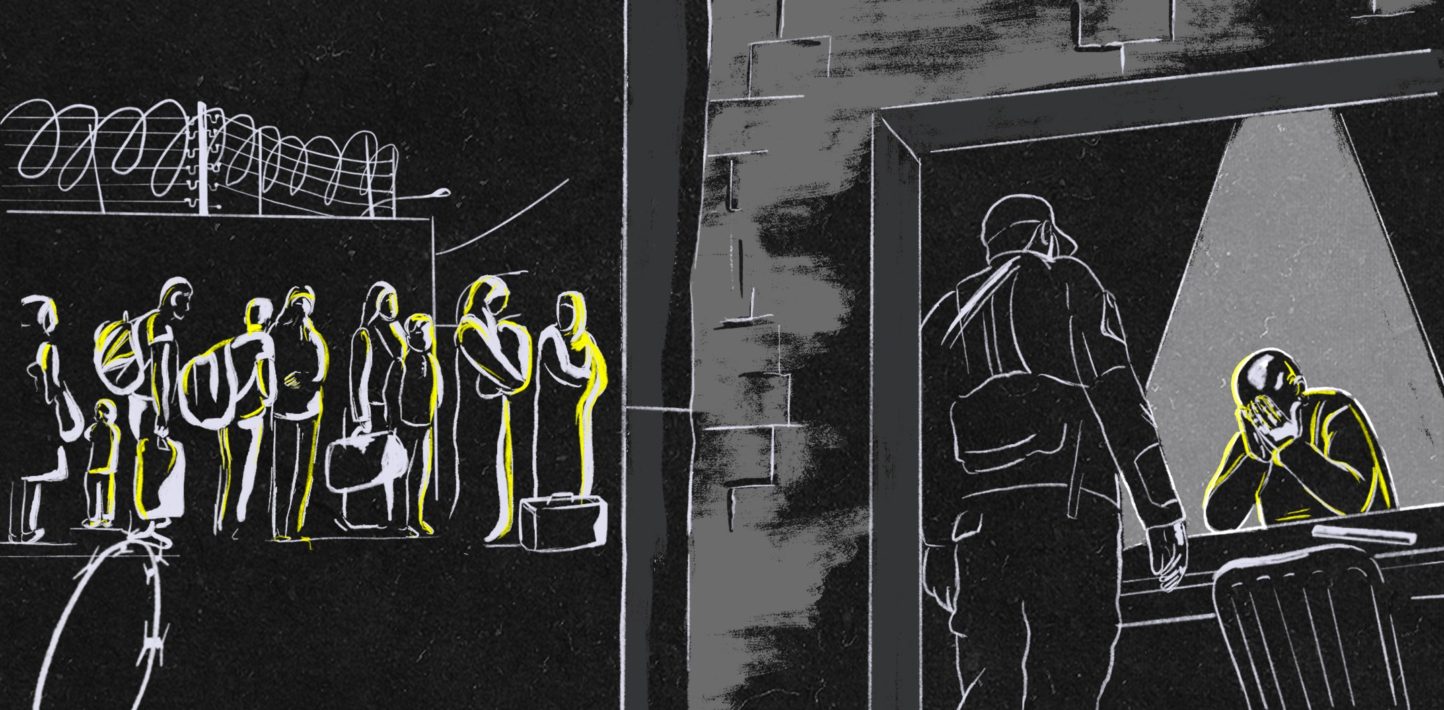The UN and the Syrian Arab Red Crescent (SARC) must halt plans to transfer refugees from Rukban camp back to Syria, Amnesty International said today. The operation would put returnees at risk of arbitrary detention, enforced disappearance, and torture and other ill-treatment, including sexual violence, as Amnesty International documented in a report this week. Rukban is an informal settlement, located in an isolated and inhospitable area between the Syrian and Jordanian borders known as “the berm”. Living conditions in the camp are dire, and residents lack access to medical care, sanitation and clean water.
Our research shows that the Syrian authorities have specifically targeted returnees from Rukban, accusing them of ‘terrorism’ before subjecting them to serious human rights violations.
Marie Forestier, Researcher on Refugee and Migrants Rights
Amnesty International received information that beginning in September, the UN plans to facilitate the transfer of people from Rukban to “shelters” in Homs, where they will be quarantined for 14 days. Amnesty has documented how these so-called shelters have been used by Syrian authorities to detain and interrogate returnees. Some of these returnees were then transferred to intelligence centres where they were arbitrarily detained and in some cases, tortured and forcibly disappeared. It is not clear how many people will be moved from Rukban if the UN-led return operation goes ahead.
“We are urging the UN and SARC not to proceed with these returns, which will undoubtedly put the women, men and children who have been living in Rukban in danger. Our research shows that the Syrian authorities have specifically targeted returnees from Rukban, accusing them of ‘terrorism’ before subjecting them to serious human rights violations,” said Marie Forestier, Researcher on Refugee and Migrants Rights at Amnesty International.
“Quarantine requirements in government-controlled facilities will essentially give the Syrian authorities 14 days to interrogate returnees. These returns must not go ahead; instead, the Syrian and Jordanian governments, as well as all parties to the conflict, must urgently ensure unfettered access of humanitarian aid to Rukban.”
Not safe
Amnesty International’s report “You’re going to your death” found that Syrian authorities have targeted returnees precisely because they sought asylum abroad. Out of the 66 cases documented in the report, Syrian security officials detained all 10 individuals who returned from Rukban camp. Three were subjected to torture or other ill-treatment, and two were forcibly disappeared.
Samer, who lived in Rukban for six years before returning to Homs in 2019, said: “[The Syrian authorities] hate people from Rukban. They think that they all have links with terrorism and should be mistreated.” Samer said that intelligence members arbitrarily detained and forcibly disappeared him for nine months, during which time they tortured him.
The evidence that Syria is not safe for returns is overwhelming – this return operation must not proceed.
Marie Forestier
Under the plan seen by Amnesty International, leaving the quarantine site in Homs would be subject to approval by the Syrian government, giving authorities the power to detain returnees for even longer periods without judicial oversight.
The last humanitarian convoy allowed into the berm by the Syrian government was in September 2019. In March 2020, Jordan announced it would not allow aid to pass through its territory, citing COVID-19 concerns. The head of the Rukban local council told Amnesty International that camp residents have expressed anger that the only convoys coming to Rukban are transferring people to Syrian government-controlled areas, rather than bringing aid.
“The evidence that Syria is not safe for returns is overwhelming – this return operation must not proceed,” said Marie Forestier.
Background
In early 2015, tens of thousands of people seeking safety from the conflict in Syria ended up stranded in the border area known as “the berm”, after Jordanian authorities sealed off border crossings. Around 10,000 people currently live in the camp there. An estimated 75% of the berm’s population have returned to Syria since mid-2015, largely due to dire living conditions.


